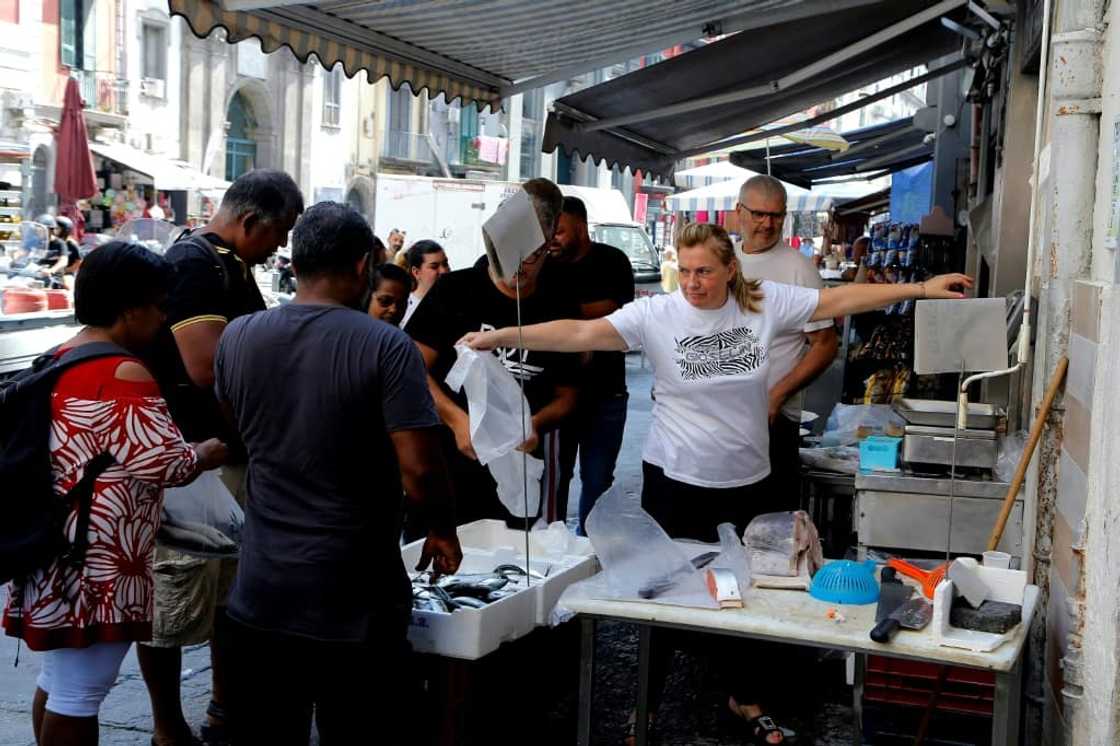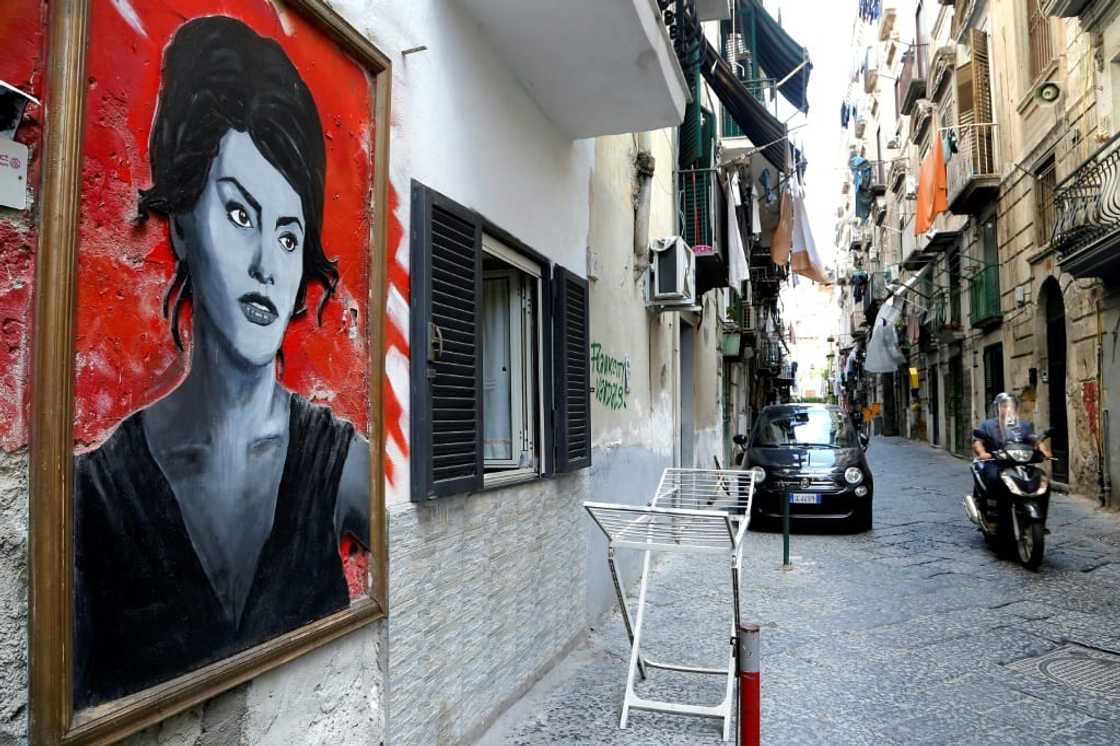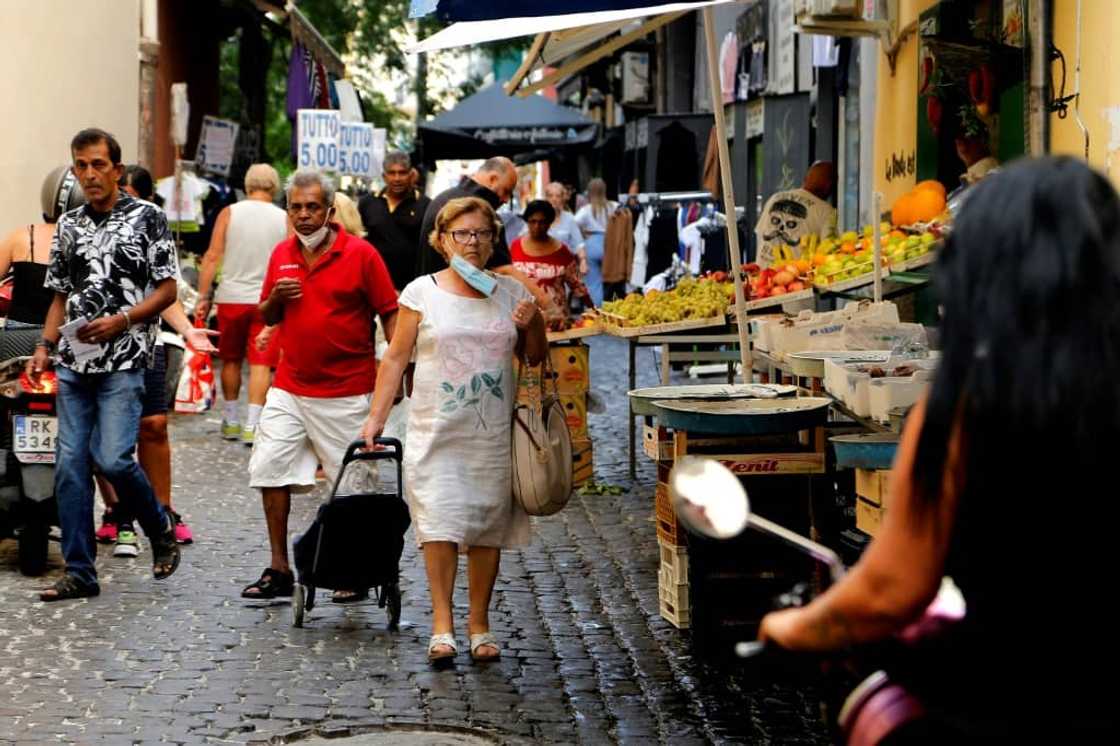Naples lays bare fall of Italy's Five Star

Source: AFP
New feature: Check out news exactly for YOU ➡️ find “Recommended for you” block and enjoy!
Vincenzo Zoppi leans over the balcony of his cramped Naples apartment, surveying his impoverished neighbourhood he says has been betrayed by Italy's politicians.
"You know when they come? When there are elections," said the 70-year-old former mechanic, who swore his 2018 vote for the anti-establishment Five Star Movement -- which swept to power four years ago on a wave of support by disillusioned voters -- would be his last for them.
"They all have the same idea: 'I have to get that position and when I get my seat, it's over.' They'll never do anything."
His view of the former upstarts is widely shared in Italy's third-largest city as the country prepares to vote on September 25.
Like most of southern Italy, Naples -- with its poor public services, high crime and 24 percent jobless rate that is more than twice the national average -- overwhelmingly supported Five Star in the last general election.
Many were drawn by its flagship minimum "citizen's income" for poor Italians, as well as its anti-austerity programme and rejection of traditional politics.
PAY ATTENTION: Follow Briefly News on Twitter and never miss the hottest topics! Find us at @brieflyza!
But the grassroots support that fuelled the movement has ebbed away, with polls now putting Five Star on less than a third of the 33 percent it won in 2018.
"Those who voted for you because you were the disruptive force to empower the south, won't vote anymore," said Matteo Brambilla, 53, a former Naples city councillor who quit Five Star last October.
"They're not credible anymore."
Protest over
The maverick Five Star Movement originally identified as neither left nor right, advocating an eurosceptic, environmentalist, anti-austerity platform focused on tackling poverty and corruption while repudiating career politicians.
But four years in, government has taken its toll.

Source: AFP
"Five Star were the expression of a huge protest against the failure of traditional parties," said Giovanni Orsina, head of the Luiss School of Government in Rome.
"But from the moment you get into government, at that point the protest ends," he said.
The party has allied with its political opponents in office -- first the anti-immigrant League, then the left-leaning Democratic Party, and finally joining almost all of Italy's parties last year as part of outgoing Prime Minister Mario Draghi's grand coalition.
With these shifts have come policy reversals, public rifts between party leaders and accusations of cronyism, while former members complain decisions are now imposed from Rome rather than developed from the ground up.
Five Star has also shed lawmakers, losing more than half of its deputies and 45 percent of its senators since 2018, according to a YouTrend study.
The defectors include Foreign Minister Luigi Di Maio, a former party leader from outside Naples who had put a more professional face on the movement founded by irreverant, combative comedian Beppe Grillo in 2009.
Di Maio quit in June along with dozens of lawmakers, accusing current Five Star leader Giuseppe Conte of trying to thwart Draghi's pro-European, Atlanticist agenda.
A month later, Conte withdrew his support for Draghi's government, triggering a crisis that led to snap elections.
'Talk, talk, talk'
Conte -- a former law professor brought in as a technocratic premier following the 2018 vote, before being replaced by Draghi -- has been trying to save Five Star from oblivion by emphasising its anti-establishment roots.
"We are the more progressive force, it's obvious," he has insisted, citing the party's battle for a nine euro-per-hour minimum wage.
Five Star's platform this year also includes tax breaks for hiring young people, protections for indebted homeowners, credits for green building projects and opposition to oil and gas drilling.
The universal "citizen's income" remains a flagship policy, which the party claims has allowed one million Italians to escape poverty -- many of them in Naples.

Source: AFP
More than 161,000 families, or over 13 percent of greater Naples' population, received on average 637 euros from the scheme in June, according to the most recent figures from the National Social Security Institute.
But the handout has come under attack for encouraging unemployment and fraud. Mafiosi, prisoners, non-citizens and others are said to have illegally received up to 40 million euros last year.
Back in the alleys of Naples' Sanita quarter, where fading funeral notices cover crumbling walls and fruit stands remind shoppers they can pay with the welfare debit card, resident Giuseppe Capuozzo vowed to "never again" vote for Five Star.
"It was a disaster. Economically, nothing. They talk, talk, talk," said Capuozzo, his white scooter laden with grocery bags.
Five Star's anti-poverty measures may have helped his neighbours, but was it fair that he paid taxes on his stagnant pension while they did not?
"But us, who's helping us?" he asked.
New feature: check out news exactly for YOU ➡️ find "Recommended for you" block and enjoy!
Source: AFP




